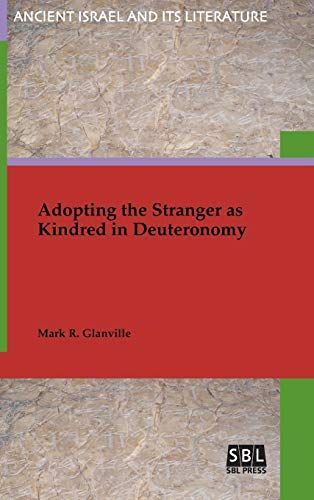
Adopting the Stranger as Kindred in Deuteronomy
Investigate how Deuteronomy incorporates vulnerable, displaced people Deuteronomy addresses social contexts of widespread displacement, an issue affecting 65 million people today. In this book Mark R. Glanville investigates how Deuteronomy fosters the integration of the stranger as kindred into the community of Yahweh. According to Deuteronomy, displaced people are to be enfolded within the household, within the clan, and within the nation. Glanville argues that Deuteronomy demonstrates the immense creativity that communities may invest in enfolding displaced and vulnerable people. Inclusivism is nourished through social law, the law of judicial procedure, communal feasting, and covenant renewal. Deuteronomy’s call to include the stranger as kindred presents contemporary nation-states with an opportunity and a responsibility to reimagine themselves and their disposition toward displaced strangers today. Features: Exploration of the relationship of ancient Israel’s social history to biblical texts An integrative methodology that brings together literary-historical, legal, sociological, comparative, literary, and theological approaches A thorough study of Israelite identity and ethnicity